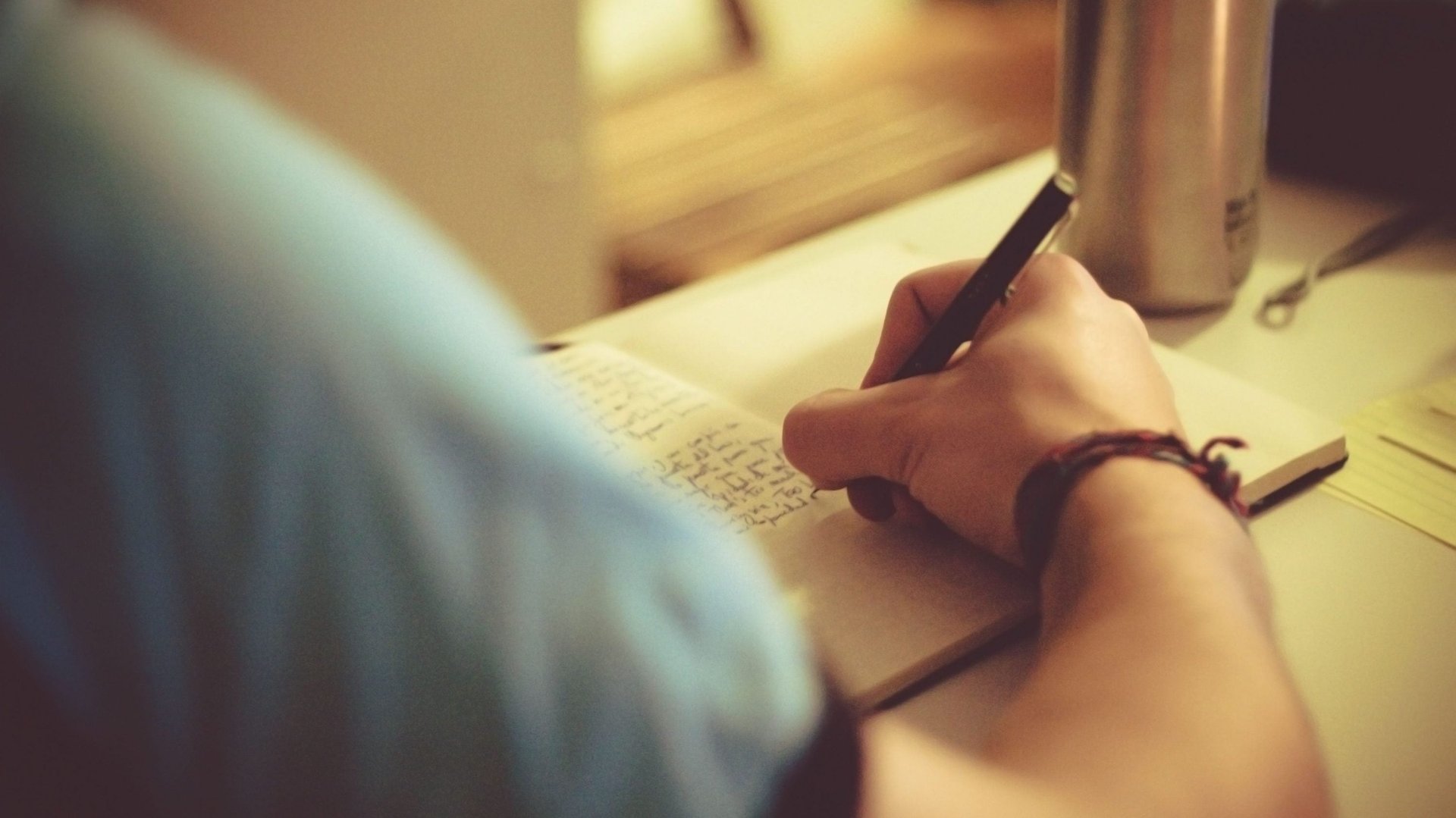A 15-minute writing exercise can help us get better at standing up to power
Each fall, I volunteer at a writing workshop for teenagers in Brooklyn. Some of the students are the children of immigrants; some are people of color. Some identify as gay or bisexual. Being New Yorkers, they’re uniformly smarter and funnier and more independent than I was at their age—but they’re still just kids. And now they will come of age under a president whose bigoted campaign rhetoric, choice of running mate, and recent administrative appointments have given them every reason to feel unsafe.


Each fall, I volunteer at a writing workshop for teenagers in Brooklyn. Some of the students are the children of immigrants; some are people of color. Some identify as gay or bisexual. Being New Yorkers, they’re uniformly smarter and funnier and more independent than I was at their age—but they’re still just kids. And now they will come of age under a president whose bigoted campaign rhetoric, choice of running mate, and recent administrative appointments have given them every reason to feel unsafe.
On Nov. 9, as the world woke up to the news of Donald Trump’s victory, the volunteers who run the writing workshop emailed each other. We needed a new lesson plan—one that could help our students, and ourselves, start preparing for a new era.
The writing exercise we came up with was designed to help our students feel empowered in the wake of a decision in which they had no vote, but which will undoubtedly affect their lives. And it was designed to help all of us, adults and teenagers, exchange ideas about how to respond to injustice.
We asked students and volunteers to spend 15 minutes writing a story about standing up to power. We explained that the story could be about standing up for yourself, or for someone else, or for a cause; it could be about what you once said, or what you wish you’d said, or totally fictional.
Afterward, we went around the room and asked each person to share what they’d written. One student told a story about how he’d stopped a group of prep-school kids who were harassing a bodega clerk about his accented English. “I told them he was doing a useful job, and in a second language, which was more than I could say about them,” he said.
Another student told a story about defending himself when a teacher wrongly accused him of cheating. A girl wrote a fictional story about a lesbian teenager telling off an aunt who’d said her sexuality made her un-Christian. Another student wrote about two boys who’d groped her and a friend while they were standing in the lunch line in seventh grade, and how they’d fought back.
The students’ stories highlighted a point a lot of marginalized people have been making since the election. While the bigotry that has surfaced in the wake of Trump is undoubtedly dangerous, these kids never felt safe to begin with. They were already dealing with racism, xenophobia, sexism, and homophobia, in their schools and at home. They had no illusions about the kind of country they were living in.
It’s unacceptable that these kids already have so much experience defending themselves and others against cruelty and ignorance. But their stories also offered some measure of hope.
It takes courage to defend yourself against a bully or intervene on another person’s behalf. It also takes practice. Often, what paralyzes us in a critical moment is not cowardice but a lack of preparation. Writing about the past confrontations we’d already had helped us remember how to combat injustice, and learn from each other’s examples.
The kids had a lot of smart ideas. We talked about the importance of correcting others, politely, when they misrepresent facts in conversation. We talked about how hard it can be to step outside of your personal bubble when you spot bad behavior—especially in a place like New York, where people are mostly expected to mind their own business—and how writing in advance can help us find the right words when we need them. And in the process, we reminded ourselves of all the times we’ve been powerful before, and will be again.
The 2016 election reinforced a devastating truth: Sometimes the virtues of reason and tolerance and respect lose. To correct the course of history, we need practice telling ourselves the stories of all the times they’ve won.